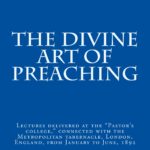Description
How to Prepare Sermons and Gospel Addresses
by
William Evans
2015
CHAPTER II. – The Personality Of The Preacher. 7
CHAPTER III. – The Text-Its Choice. 11
CHAPTER IV – The Text-Its Interpretation. 20
CHAPTER VI – Sermon Material – Gathering It. 32
CHAPTER VII – Sermon Material-Arranging It. 38
CHAPTER VIII – The Sermon Itself – A. The Introduction. 43
CHAPTER IX – The Sermon Itself. – B. The Body. 50
CHAPTER X – The Sermon Itself. – C. – The Conclusion. 62
Chapter XI – The Expository Sermon. 64
CHAPTER XII. – Bible Readings. 68
CHAPTER XIII. – Great Chapters As Texts. 73
CHAPTER XIV. – Illustrations And Their Use. 75
Chapter XV – OUTLINES OF SERMONS, GOSPEL ADDRESSES, AND BIBLE READINGS 86
FOREWORD
This volume is not an attempt to present a complete and exhaustive treatment on Homiletics—the science and art of preaching, for there are already on the market larger and more comprehensive works on the subject. This book is prepared not only for theological students but also to supply the need of such as find themselves denied the privileges of a regular ministerial training, but who, nevertheless, feel themselves called upon to preach or proclaim the gospel of the Lord Jesus Christ. Indeed the lectures herein printed are in substance the same as delivered to young men and women preparing themselves for Christian service in a Bible training school. This fact accounts for their conversational style, which the author has not deemed wise to change.
Christian laymen, even though not preachers in the accepted sense of that term, desiring to be able to prepare brief gospel addresses and Bible readings, will find the help they need in this volume. Those seeking help in the preparation of “talks” for young peoples’ societies, conventions, leagues, etc., may receive hints and suggestions in this work.
The book contains theory and practice. Part One deals with the method of constructing various kinds of sermons and Bible addresses. Part Two is composed of outlines illustrating Part One.
The closing chapter on “Illustrations and Their Use” has been found so helpful wherever delivered that it is thought advisable to give it a place in this volume.
WILLIAM EVANS
CHAPTER I. – Definitions.
- Homiletics.
The word homiletics is derived from the Greek word homilia, and signifies either a mutual talk and conversation, or a set discourse. The preachers in the early church were in the habit of calling their public discourses “talks,” thus making it proper to speak of what is in the present day in some quarters called “a gospel talk.”
From the word homilia has come the English word homiletics, which has reference to that science, or art,- or indeed both, which deals with the structure of Christian discourse, embracing all that pertains to the preparation and delivery of sermons and Bible addresses. It shows us how, scientifically, to prepare a sermon or gospel address, and how, effectually, to deliver it. Homiletics, then, is the art and science of preaching.
- What is Preaching?[i]
Preaching is the proclamation of the good news of salvation through man to men. Its two constituent elements are-a man and a message-truth and personality. The gospel proclaimed by means of the written page or the printed book is not preaching. There is no such thing as seeing “sermons in stones.” Again, the proclamation of any kind of message other than the gospel message, which is the truth of God as revealed in the Bible, and in Jesus Christ especially, is not preaching. Much of what is heard from the so-called Christian pulpits of today is not real preaching. The discussion of politics, popular authors, current topics, and kindred themes may rightfully be called addresses, and may result in the emulation of the orator, but such efforts can in no sense of the word be called preaching, and such men have absolutely no right, so long as they continue to deliver such addresses from the pulpit, to the honored name of preachers of the gospel. The message of the very truth of God through man to men-that is preaching.
- What is a Preacher?
The preacher, he who is separated by God for the specific work of the preaching of the gospel, is a man who, from one side of his nature takes in the truth from God, and from the other side of his nature gives out that truth to men. He deals with God in behalf of men; he deals with men in behalf of God.
This truth must not be mechanically expressed. It must not be merely truth through the mouth, over the lips, in the intellect, or by means of the pen, but truth through his character and personality. Every fibre of the man’s moral and spiritual nature must be controlled by the truth. The force of a blow is measured not by the arm only, but also by the weight of the body behind the arm. And just here is the difference men instinctively feel between one preacher and another. The hearer is persuaded that the truth which is being proclaimed from the pulpit has come over one preacher, whereas it has come through the other. Consequently the preaching of the one is tame and uninteresting, while that of the other is strong, fascinating, and convincing.
The preacher must not be a mere machine, an automaton; he must be a real man-a good man, and full of the Holy Spirit and of faith; and the effect of such a life and such preaching will be that much people will be added to the Lord (Acts 11:24).
The personality of the preacher has very much to do with the effectiveness of his message. An artist may be a profligate and yet produce a picture or a statue which will call forth the admiration of the people; an author may be dissolute in morals and yet produce a book that will set the world aflame with his popularity. These are works of art and can be considered apart from the man himself. But not so with the preacher and his sermon: it is a part of himself, indeed it must be the expression of his very life and experience. If such is not the case, then, what is called preaching will be nothing but “sounding brass or a tinkling cymbal.”
Personality counts in preaching. Is not this one of the reasons why many sermons do not usually make good reading?-there is the absence of the personality of the preacher. Of course, there are some very splendid exceptions to this fact, but often, alas very often, the sermon is but an echo of the man. Have we not more than once wondered at the dryness of a sermon we were reading when at the time we heard it we were moved to the very depths of our being? What was lacking? The personality of the preacher, that is all- but how much is wrapped up in that personality!
The root of the matter must be in the preacher himself before he can proclaim it with convicting force in and through the sermon. Given a man who is a born artist and you have only to supply the palette and brush, or chisel and mallet with mere technical skill, and you have a statue or a picture. And if you have your preacher-a man with the root of the matter in him-you will find very little else is needed to set free the sermon that is in him.
From this it is clearly evident that true preparation for the gospel ministry does not consist in mere tricks in sermon-making, or delivery, but in the development of true personality. Such a man in the pulpit will surely prove to be a preacher who will reach the masses. We hear complaints on every hand to the effect that people do not want gospel preaching today. This is a mistake. There never was a day when people wanted it more than now. What they do object to is a gospel read or declaimed and not preached. In other words, they ask for a consecrated personality in the pulpit. Look abroad today, and what do you see?-that wherever the gospel is preached by consecrated personality, there are found men and women to hear it.
[i] Cf. Preaching, by Phillips Brooks





Reviews
There are no reviews yet.